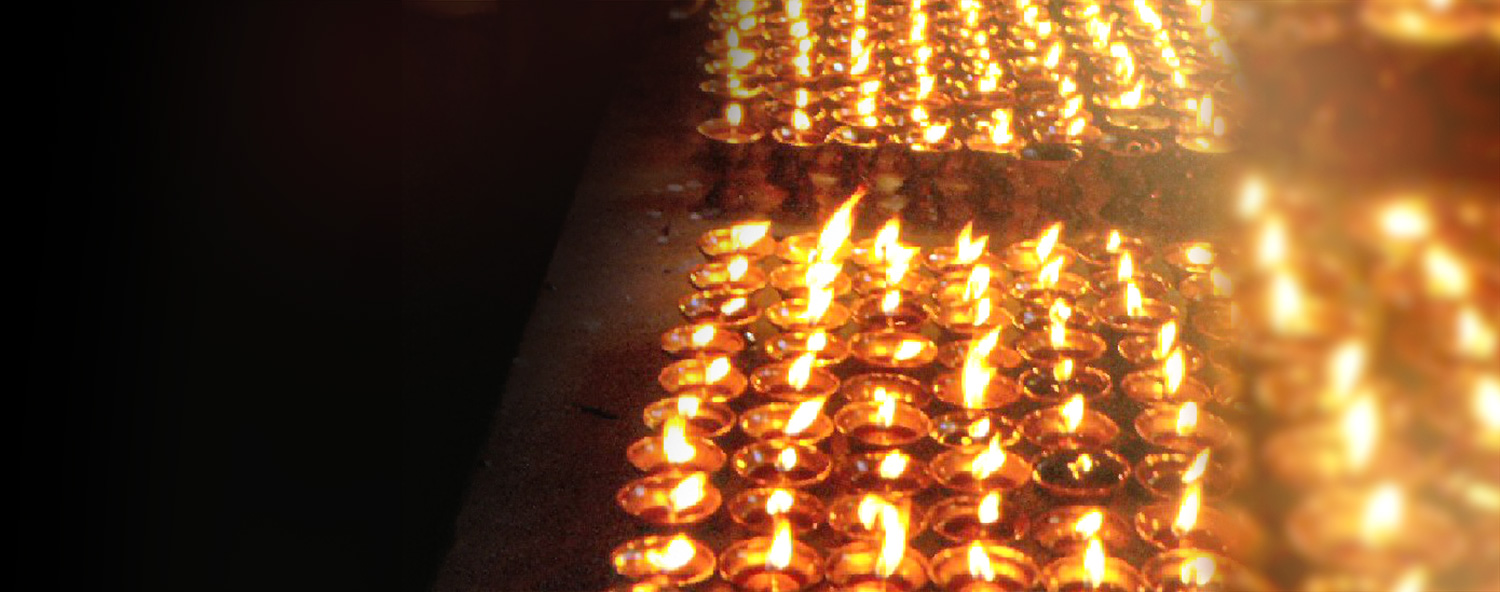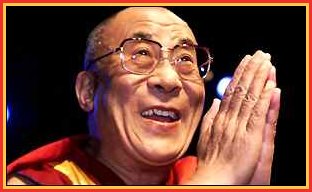
His Holiness - The 14th Dalai Lama
 His holiness Gyalwa Tenzin Gyatso, Dalai Lama XIV, spiritual and temporal ruler of Tibet, leads a worldwide campaign for more autonomy for Tibet from his exile headquarters in the northern Indian city of Dharmsala. He fled to India in 1959 after an abortive revolt, and over the years, hundreds of thousands of Tibetans have joined him. He says, "Our way may be a hard and long one, but I believe that truth and faith must ultimately prevail."
His holiness Gyalwa Tenzin Gyatso, Dalai Lama XIV, spiritual and temporal ruler of Tibet, leads a worldwide campaign for more autonomy for Tibet from his exile headquarters in the northern Indian city of Dharmsala. He fled to India in 1959 after an abortive revolt, and over the years, hundreds of thousands of Tibetans have joined him. He says, "Our way may be a hard and long one, but I believe that truth and faith must ultimately prevail."

His greatest sources of inspiration is this verse found in the writings of the renowned eighth century Indian master, Shantideva.
For as long as space remains
And for as long as sentient beings remain,
Until then may I too remain
And dispel the miseries of the world.
He says, "This prayer really gives me inner strength and value."
 "When we meet real tragedy in life, we can react in two ways: either by losing hope, falling into self-destructive habits, or by using the challenge to find our inner strength" "All the different religious faiths, despite their philosophical differences, have a similar objective. Every religion emphasizes human improvement, love, respect for others, and sharing other's suffering. On these lines every religion has more or less the same viewpoint and the same goal."
"When we meet real tragedy in life, we can react in two ways: either by losing hope, falling into self-destructive habits, or by using the challenge to find our inner strength" "All the different religious faiths, despite their philosophical differences, have a similar objective. Every religion emphasizes human improvement, love, respect for others, and sharing other's suffering. On these lines every religion has more or less the same viewpoint and the same goal."
"Our intention should not be spoiled by the eight worldly preoccupations: gain or loss, pleasure or pain, praise or criticism, and fame or infamy."
"Once your mind is dominated by anger, it becomes almost mad. You cannot make right decisions, and you cannot see reality. But if your mind is calm and stable, you see everything exactly as it is."
"Naturally, most of us would like to die a peaceful death, but it is also clear we cannot hope to die peacefully if our lives have been full of violence, or if our minds have mostly been agitated by emotions like anger, attachment, or fear. So if we wish to die well, we must learn to live well: Hoping for a peaceful death, we must cultivate peace in our mind, and in our way of life."